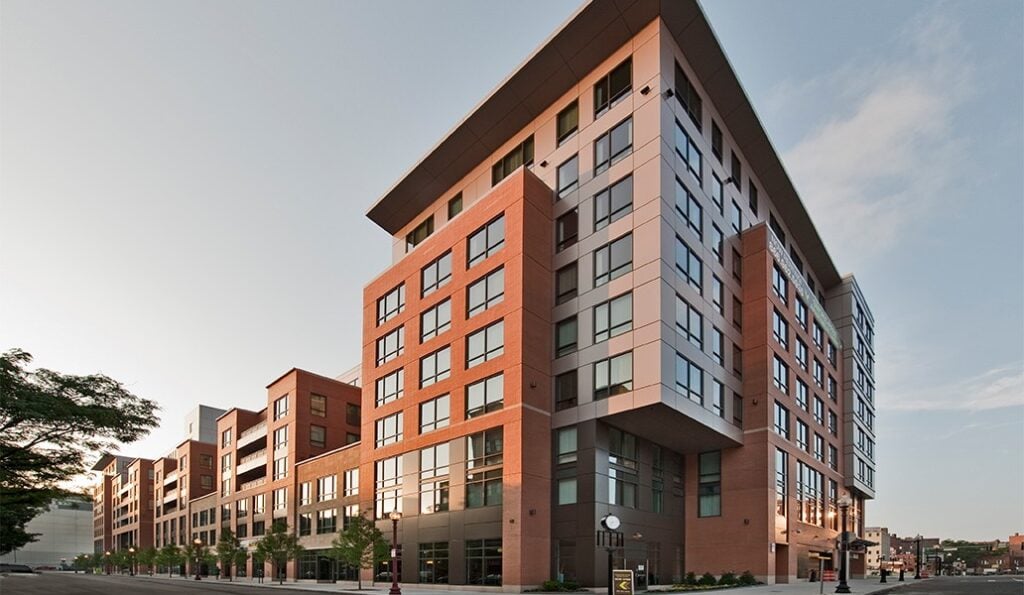Background
Equity Residential, a public company traded on the New York Stock Exchange, owns or has investments in 319 properties nationwide. The portfolio includes 86,422 apartment units, with an established presence in Boston, New York, Washington, D.C., Seattle, San Francisco and Southern California, and an expanding presence in Denver, Atlanta, Dallas/Ft. Worth and Austin. Among its more than dozen Boston properties are Avenir in the North End, 660 Washington Apartments in the Theatre District, Troy Boston in the South End, 315 on A in Fort Point, and several West End complexes including Alcott, Astera, Villas, and Vesta. Equity has set a “science-based carbon target” to reduce its scopes 1, 2, and 3 greenhouse gas emissions by 30 percent by 2030 and reduce its energy intensity per square foot by 20 percent by 2030, compared to a 2018 baseline.

Strategy
Equity Residential has been steadily investing in energy efficiency projects with attractive payback periods for many years. These include lighting retrofits, garage Carbon Monoxide sensor systems, and other sensor and control solutions such as Runwise building-control sensors that optimize boiler systems. The company is also piloting highly energy-efficient window glazing in Manhattan that, depending on performance, may be considered for installation in buildings in the Boston-area and elsewhere. The Luxwall windows are designed to function like a double-paned window but can be installed from inside the building, reusing the same window frames and gaskets as the less-insulating windows it replaces.
“We are using data loggers to see if the benefits are as good as modeled, because if they are, we’d be thrilled to expand the roll out,’’ says Rebecca Becker, Vice President – Environmental and Climate Adaptation for Equity Residential. Becker stresses that “we’re focused on making the right investments, creating value, and avoiding risk.’’ More than a decade ago, the company made big investments in cogeneration systems producing both heat and electricity for buildings it owned; the cogen systems were very successful, but in recent years, service providers have been exiting the business. “We’ve made our money back on them, but now, due to service provider concerns and aging equipment, they can be a distraction from our day-to-day operations.” On the question of installing geothermal heat to some or all of its Boston buildings, Becker says: “It is difficult to make the numbers work for geothermal for our existing buildings” in terms of a return on investment.
“If energy efficiency and sustainability projects don’t have a better return on investment than other investment opportunities, then they’re unlikely to move forward.“
Like its peer AvalonBay, Equity faces the reality that up to 70 percent of its buildings’ energy consumption comes from its renters, and it is challenging to change resident behavior to reduce energy consumption. Equity has implemented some programs and processes to help residents conserve energy, like implementing conservative maximum and minimum temperatures for heating and cooling on smart thermostats .“We can’t typically increase rents or pass through expenses for investments on the sustainability or environmental side like commercial owners,” Becker says. “If energy efficiency and sustainability projects don’t have a better return than other investment opportunities, then they’re unlikely to move forward.”
The Results
Equity plans to meet 2030 BERDO Compliance either through accretive energy and greenhouse gas-reducing capital investments at properties that don’t currently meet the 2030 targets or through alternative compliance options, like the building portfolio compliance option.